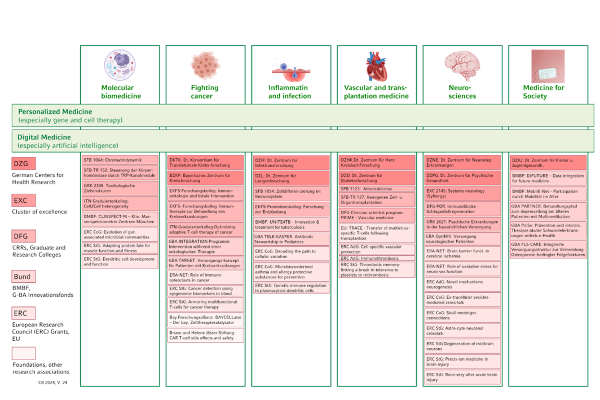Transplantation research, a key field within regenerative medicine, is characterized by continuous innovation. At the Faculty of Medicine, research focuses on strategies to mitigate ischemia-reperfusion injury, which occurs when an organ has been deprived of blood supply for a period of time, the prevention of transplant failure, and — given the shortage of donor organs — the development of organ replacement procedures.
The research area "Vascular Medicine" constitutes another subfield within the broader focus on "Vascular and Transplantation Medicine". Vascular diseases are a frequent cause of cardiovascular conditions and strokes. To enable early prevention of these diseases, a deeper understanding of the mechanisms driving vascular changes is essential.

